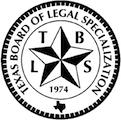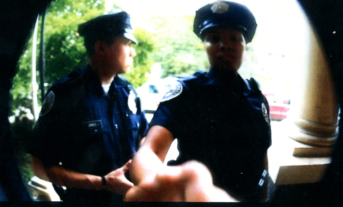What tactics can the police use when questioning a suspect?
The police are prohibited from using physical or psychological coercion when conducting police interrogations. A confession or evidence that results from coercive tactics is inadmissible at trial. The police, for example, may not use torture techniques, threats, drugging, or inhumane treatment during an interrogation. The police, however, can use lying, trickery, and other types of non-coercive methods to obtain a confession from a suspect.
The most common example of this is police interrogation. The cops are allowed to use any deception they like, in order to get a confession.
Another very pervasive lie (and one that works all the time) is that conversations will be strictly off the record. “Just between you and me.” Nothing you ever say to a police officer is ever off the record. If it can be used against you, it will.
The Reid Technique
When police officers suspect a person of a crime, they often use the Reid interrogation technique, first developed in the 1940s. This is the sort of questioning you see in the movies and on television. The Reid technique is the basis of the widely used “Criminal Interrogation and Confessions” manual we already mentioned. It lays out nine steps or issues guiding interrogation. Many of these steps overlap, and there is no such thing as a “typical” interrogation, but the Reid technique provides a blueprint of how a successful interrogation might unfold.
The Reid technique is a method of questioning suspects developed by consultant and polygraph expert John Reid. Supporters argue that the Reid technique is useful in extracting information from otherwise unwilling suspects, while critics have charged the technique can elicit false confessions from innocent people, especially children.
I once heard Dean Strang from the Netflix series speak about the Reid Technique, and how it was used to obtain a confession that was, at the very least, questionable from the juvenile on the show who confessed to the details of the murder. Dean Strang mentioned the high propensity for possible false confessions. He also noted how older Supreme Court cases lauded the technique, to some degree, because it was looked upon as a better tactic than, quite literally, beating a suspect into giving a confession.
In real life, the Reid technique is very effective at producing confessions. This is why it has been used for over half a century.
Informal Questioning
Informal questioning can also occur any time a person interacts with an officer. If an officer stops you and you do not know why, you should assume that the officer suspects you of committing a crime—whether that crime is speeding or murder—and is trying to get you to confess to the crime, and you should act accordingly. Ask if you are free to leave. If you are, then leave. If not, then say that you do not wish to answer any questions and you wish to speak to an attorney.
Lying
It is an urban myth that police officers can never lie. There is no law or rule against police officers saying that certain evidence exists or that a co-defendant has confessed, even if is this is not true. Police are generally prohibited from making threats (“If you do not confess, we will make certain that you never see your children again”) and promises (“If you confess now, we will charge a less serious crime”), although the lines between impermissible threats and promises and allowed police tactics are far from clear. Again, the best way to protect yourself from police tactics it with the assistance of an attorney. Your attorney can investigate the case and find out what evidence if any, police have against you.






















